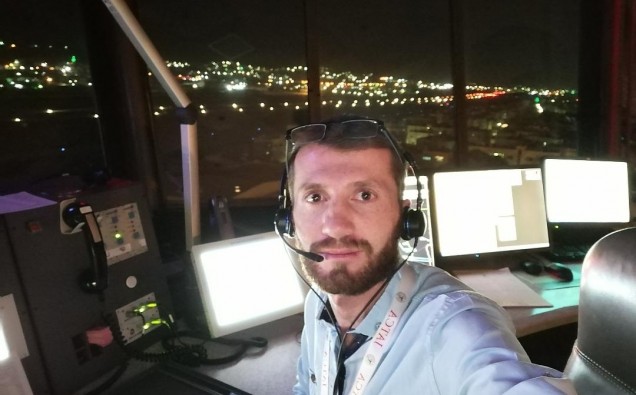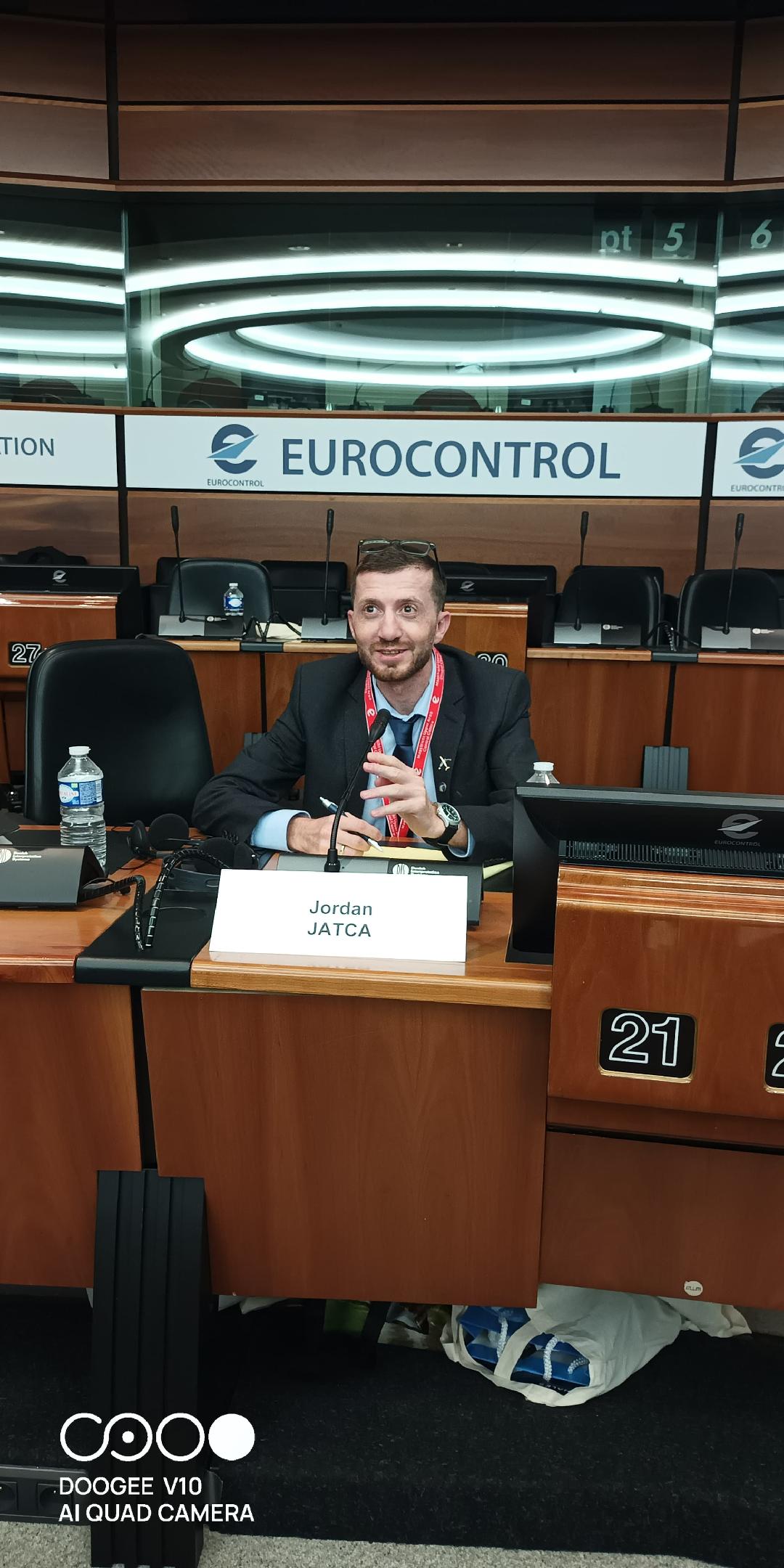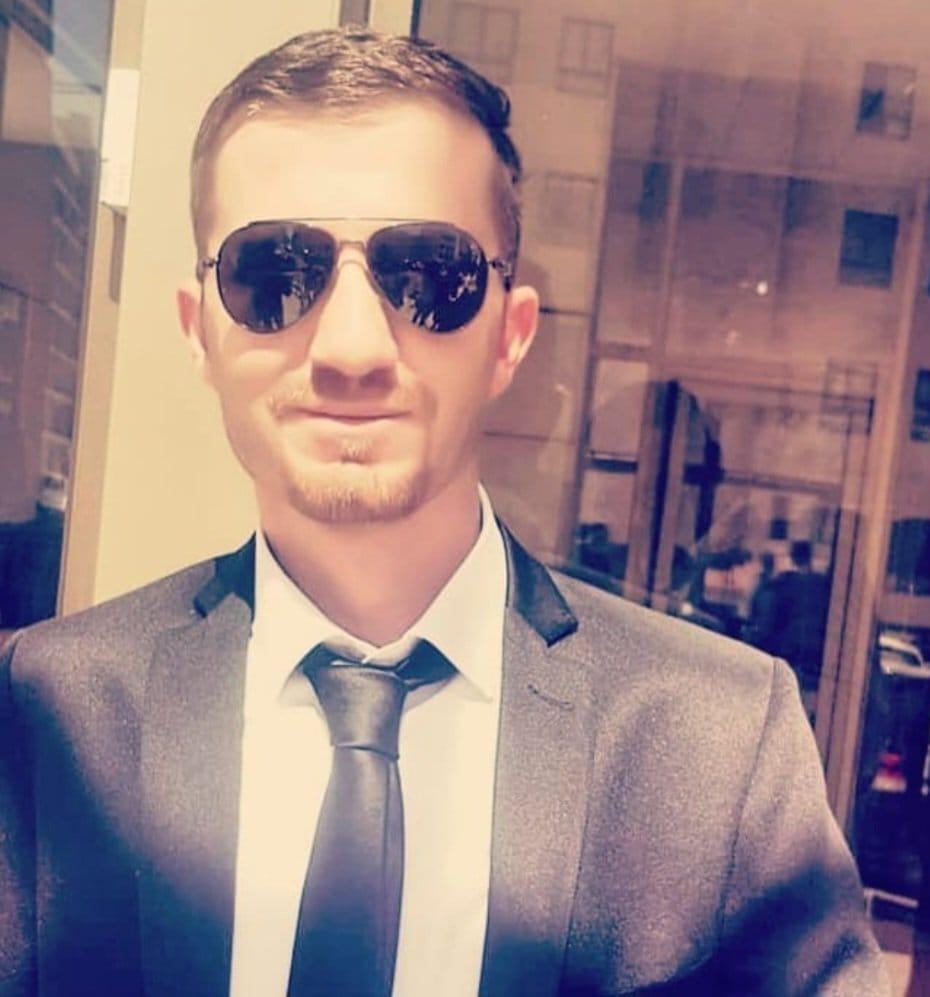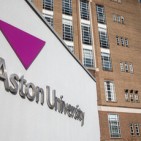Yazeed Al-Momani (Instagram A/c: atc_yazeed.b.almomani), a computer science graduate from Jordan Amman, is an air traffic controller who first worked for a multinational corporation that specialized in civil engineering, namely airport infrastructure. His perseverance led him to pursue a career in aviation, and after completing the required tests, medical evaluations, and security clearances, he was approved by the Jordan Civil Aviation Regulatory Commission. He has spent the last five years working as an air traffic controller in the control tower at Queen Alia International Airport. His main responsibility is to make sure that planes can operate through Jordanian airspace safely and effectively, particularly around Queen Alia Airport. Yazeed has a number of professional accomplishments. He had significantly contributed to the enhancement of the ground operations team, airlines, and control tower communication protocols. He has taken part in rigorous training courses to improve his proficiency with cutting-edge air traffic control equipment, such as radar and ground movement service radar (GMSR). He has assisted in overseeing emergency landings and safely directing aircraft as a member of fast emergency response teams.
In addition to this, Yazeed has represented his nation at numerous international conventions.
Yazeed: Aviation has always been my passion. Airports and airplanes have captivated me since I was a young child. I was particularly drawn to air traffic control because of the direct influence we have on flight safety, the high level of responsibility, and the need for accuracy. I believed that this line of work would enable me to significantly impact the aviation sector. I enrolled in Queen Noor Civil Aviation Technical College, one of the best institutions in Jordan for air traffic control, in order to work toward my goal. I gained the foundation and abilities necessary to succeed in this vital career from the instruction I obtained there.
Yazeed: In order to maintain a safe, orderly, and effective flow of air traffic, air traffic control is essential. ATC provides routing and sequencing, coordinates between sectors, shares weather information, and oversees aircraft separation from departure to arrival. Our participation guarantees a seamless flying experience for both passengers and crew, minimizes delays, and avoids collisions.
Yazeed: The most noteworthy incident occurred in 2022 amid an unexpected sandstorm. The visibility drastically decreased, and there were several international flights arriving. The situation was extremely stressful and necessitated quick coordination with pilots, aircraft rerouting, and safe separation. Through exceptional teamwork and prompt decision-making, we handled the situation safely, effectively, and incident-free.
Yazeed: I appreciate the job’s dynamic and ever-changing character. Every flight is a unique challenge, and no two days are the same. The most rewarding part is realizing that I contribute significantly to maintaining public safety and facilitating efficient air traffic flow.
Yazeed: The amount of responsibility and mental strain. Every command needs to be precise, timely, and unambiguous; mistakes are not tolerated. One of the hardest aspects of the job is maintaining optimal performance under pressure, particularly in times of emergency or heavy traffic.
Yazeed: Representing Jordan at the Singapore 2024 International Air Traffic Controllers Conference was an enormous honor. That was a really motivating event. I got to interact with experts from all over the world, share expertise, and learn about new developments in air traffic control. Speaking on behalf of Queen Alia International Airport made me feel honored.
Learning about cutting-edge systems such as Ground Service Movement and A-CDM (Airport Collaborative Decision Making) was one of the most beneficial lessons learned. Particularly in low-visibility situations, these devices are crucial for controlling aircraft movement between gates. They contribute to increased productivity and decreased delays, which is something I hope our own airports can adopt.
Such occasions broaden our perspectives, offer useful instruments for development, and foster our career advancement. Being a member of this international aviation community makes me proud.
Yazeed: Indeed, the Traffic Collision Avoidance System (TCAS) is one of the most crucial technologies that helps avoid mid-air collisions and lower human error. Aircraft are equipped with this system, which operates independently from ground-based ATC. If it detects a possible collision, it sends out Traffic Advisories (TAs) and Resolution Advisories (RAs) after continuously scanning the airspace for other aircraft with transponders. The system tells pilots to do certain vertical maneuvers in order to avoid the conflict when a RA is triggered. TCAS acts as a vital backup system in the event of a misunderstanding or a delayed reaction, even if ATC is still in charge of traffic management.
Yazeed: In order to minimize misunderstandings, we utilize standardized terminology that has been authorized by the International Civil Aviation Organization (ICAO). I politely ask the pilot to repeat or rephrase the information if I have trouble understanding a certain accent. Safety and clarity come first at all times.
Yazeed: A person who can think fast, communicate clearly, maintain composure under pressure, and collaborate well with others is a good air traffic controller. Strong senses of accountability, discipline, and a never-ending drive to learn and grow are necessary for this position.
By: Rida Khan (Aviation Author)
Instagram A/c: aviationauthor.ridakhan



















